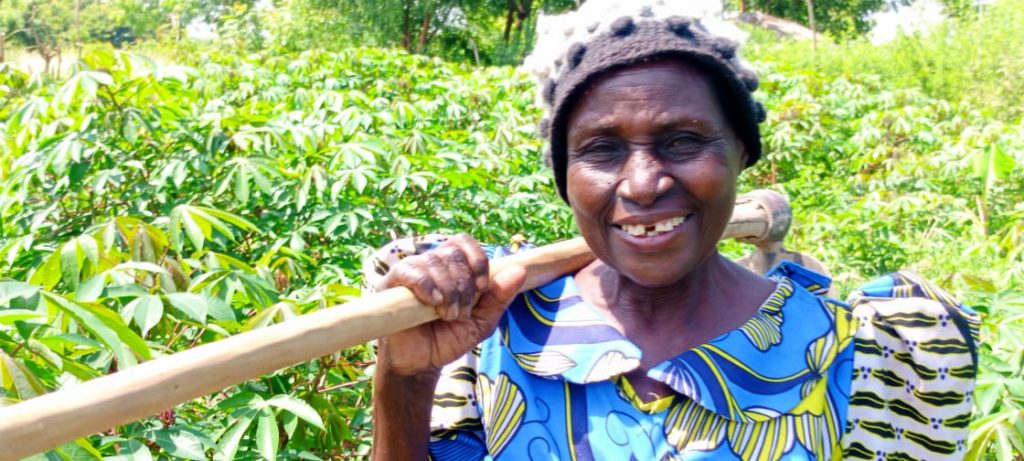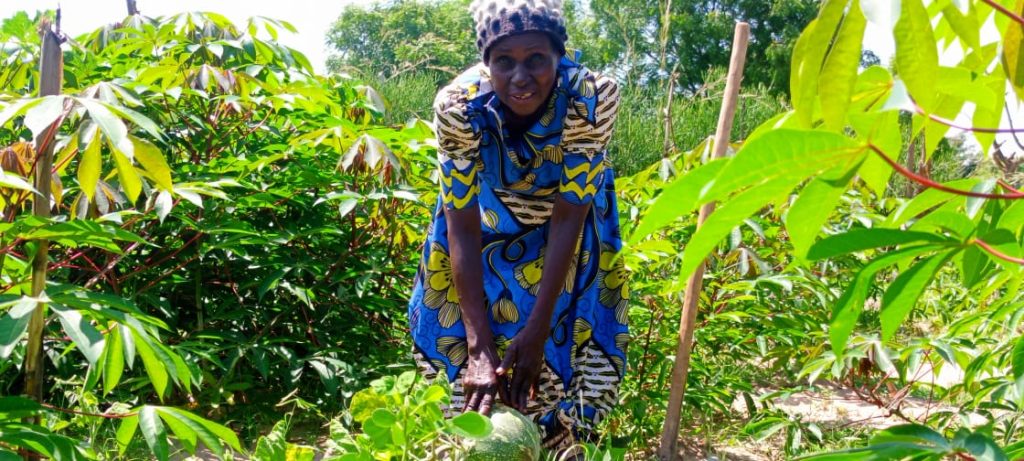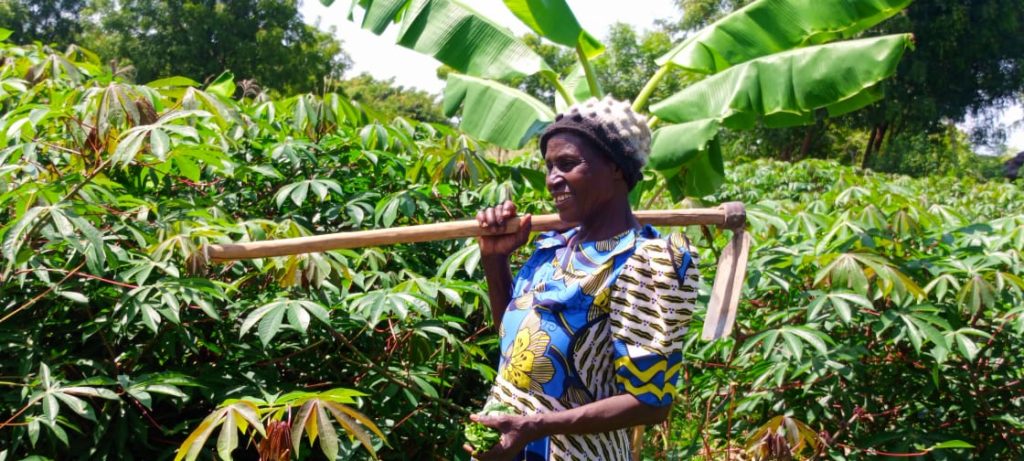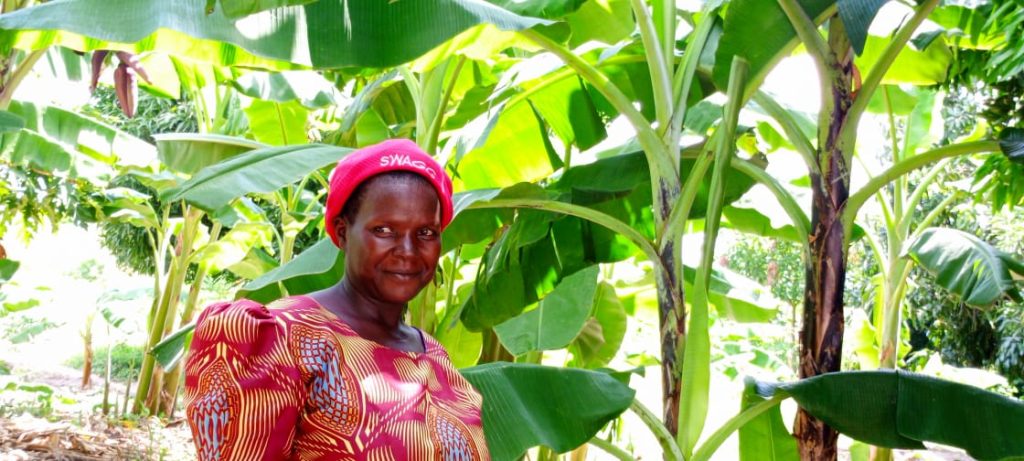
Homestead gardens: A pathway to food security for smallholder farmers in Buliisa district, Uganda’s oil region
In Buliisa district, in Uganda’s oil region, oil and gas activities continue to put pressure on existing productive land, making agriculture increasingly difficult for survival. Nearly, 69% of the residents depend on farming not only for income but for food. Yet for many, hunger and the long treks to distant gardens are part of daily life, draining energy, limiting time with family, and sometimes fueling tensions at home.
For decades, communities in the area have lived on dry areas with their livestock, leaving fertile areas like Ngwedo for cultivation. This means that women often spend entire days tending to distant gardens, while children skip school to help or stay home with younger siblings. The prolonged absence of parents has, in some households, led to domestic conflicts, making farming a source of stress as well as sustenance.
At 69, Violet Bitamale, a smallholder farmer from Bagungu community in Buliisa district has gone through this too. With 14 family members to feed, every planting season meant walking miles from her home in Kakindo village to gardens in Ngwedo Sub County. “Our homes are basically for grazing,” Bitamale explains. “If we plant crops near our houses, the goats, cows, and other animals destroy everything. We have no choice but to walk miles to Ngwedo to feed our families.”
This challenge has been compounded by the discovery of oil and gas. Oil and gas infrastructure, including the Central Processing Facility (CPF), pipelines, and access roads, has taken up parts of Ngwedo’s fertile land. This has further limited the land available for farming, forcing families to cultivate areas previously reserved for grazing, where domestic animals roam freely and destroy crops.

Figure 1: Bitamale removing a pumpkin from her homestead garden intercropped with indigenous cassava with a green hedge in the background that was planted with support from AFRICE
Fencing: a simple solution with profound impact
With support from Biovision Foundation through African Institute for Culture and Ecology (AFRICE), smallholder farmers like Bitamale are establishing homestead gardens creating a protected space to cultivate food right at home.
“When AFRICE helped me fence my garden, I could finally grow food without fear of my goats and my neighbors’ goats destroying it,” Bitamale says. “Now my garden is steps from my house, and I can grow vegetables year-round.”
But the benefits of homestead gardens extend far beyond food production. Bitamale explains that her family no longer quarrels about the long days spent in distant fields. “There is peace at home now,” she says. “I can care for my grandchildren and grow food without neglecting my family. Everyone is happier, and we are stronger as a household.”
The intervention has also transformed how local resources are used. Manure from livestock, which previously went unused, now nourishes the soil. This has enabled Bitamale to embrace agroecology practices from her home without trekking to distant gardens. She has been able to use her homestead garden to multiply climate-resilient indigenous seeds while sharing with her neighbors. This approach strengthens the local ecosystem while providing nutritious, diverse foods.
“Now I no longer walk far to Ngwedo with manure on my head. I utilize manure from animals around to improve my soil health while having enough time to take care of my family. We have enough food, and I can even sell some to pay school fees for my grandchildren,” she adds proudly.
Bitamale, a member of Tulime Hamu Embibo Zikadde; a smallholder farmers’ group reviving indigenous seeds, has also become an active advocate for land rights, supporting other women to embrace agroecology.

Figure 2: Bitamale smiles as she picks vegetables in her garden of cassava intercropped with banana and vegetables
Joyce Babyesiza, also from Kakindo, recalls the constant anxiety that once came with food scarcity. “I was always worried about feeding my children and burdened by long walks to the garden. My husband was always complaining about my absence at home,” she shares.
Through AFRICE’s support, Babyesiza fenced her garden and has been benefiting from training in agroecology practices, including intercropping, use of organic fertilizers, natural pest control, and crop rotation.
“Fencing restored my hope,” Joyce says. “Healthy soils mean healthy food, and my children eat well. That has brought happiness and calm to my household. I feel more respected, and my voice counts in family decisions.”
Her garden now flourishes with cassava, pumpkins, dodo, groundnuts, and mango trees. Food availability has improved, and her household no longer faces hunger.

Figure 3: Babyesiza in her fenced garden harvesting Ndiwa
In Kigwera, Birungi Magret, a mother of 15, once battled despair farming in distant gardens vulnerable to elephants and pigs. Today, AFRICE’s fencing and agroecology trainings have transformed her homestead into a thriving banana plantation with over 150 banana stools, pawpaw, eggplants, millet, sweet potatoes, cassava, maize, and pumpkins.
“I was helpless and stressed. Farming felt like a punishment, not a blessing,” she remembered.

Figure 4: Birungi in her banana homestead garden
A model for tacking food security
These stories show that homestead gardens not only reduce food insecurity but also reduce domestic conflict in families. By fencing gardens, promoting organic farming, and reviving indigenous seeds, AFRICE’s approach is turning household struggles into stories of resilience. Indigenous seeds varieties once lost to hybrid varieties are being revived and multiplied, providing food security and environmental benefits simultaneously.
According to AFRICE’s Executive Director, Tabaro Dennis Natukunda, this initiative addresses deeper social issues beyond food insecurity. “When women farm safely at home, they feed their families, reduce household conflict, and build stronger communities.” he says.
Nearly 79% of farming households in Buliisa face food insecurity, a challenge worsened by oil exploration and shrinking fertile land. But with homestead gardens, families are finding a way forward. They are not only planting food but also planting peace, stability, and hope in their homesteads.